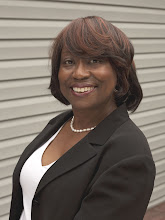
By Anna D. Banks, GCDF
For many older workers today, retirement is not part of the immediate future. Rising healthcare costs and living expenses combined with inadequate financial planning are giving many people a reason to go on working longer. Some may retire and then rejoin the workforce, while others may change careers mid-way. Either way, a change in career can be the cause of much anguish, and frustration.
There are however, many organizations that offer counseling and networking opportunities for retired mature job seekers. A lot of people in their golden years are dealing with an entirely new set of life challenges. Most experts agree on the following advice:
Rediscover other passions that may have been sidelined in your first job for one reason or another. Finding a job or career path that fulfills you and interests you should be the prime focus, instead of just identifying the next paycheck. Searching for work in the field you spent years in may not work. Don’t assume that you are too old to change direction at this stage in life. In fact, it is a great idea to prepare to step into a new career after retirement. This is the best time to look for a new career, doing what you have always dreamt of doing.
There are generally supposed to be three stages in your life, the learning stage, the working stage and the retirement stage. However, in the age of technology, we have moved into a time when those stages need to merge, and learning, work and play, all become lifelong activities. If you feel the need, for whatever reason, to go back to work after retirement, it is probably a great thing to do for yourself. It will keep you active and younger, for much longer
Find the right motivation to go back to work. Prepare yourself well to step into a new career after retirement. It can be hard for retirement-aged workers to find the motivation to change careers, and to go on working, especially if they have been looking forward to leisure, or feel underappreciated. You may begin to feel that you are no longer contributing in a meaningful way and may envy those peers who are able to enjoy retirement. However, it is important that you learn to make the most of your situation and your activity. Overcome the mental barriers, first and foremost, and become more receptive to the idea of work as a factor that can coexist with learning and playing. A new career after retirement can:
• Give you the opportunity to find a more meaningful working life
• Allow you to achieve accomplishments more compatible with your values
• Give you a community base and the opportunity to give back to society
• Can keep isolation at bay as you age
• Keep your mind and body as active as in youth
• Keep you socially connected with peers
• Fight stereotypes of the loss of creativity and productivity with age
• Keep you engaged and increase your lifespan
• Shift your perspective and begin a new and rewarding career.
ANNA D. BANKS, GCDF is an adjunct professor at Essex County College, career development and marketing coach, speaker, and author. Anna helps individuals design a game plan for an extraordinary career or business. Since 1996, Anna has helped hundreds of job-seekers, managers, business owners, and sales professionals achieve career success. For more information send an email to Anna@AnnaBanks.com.






